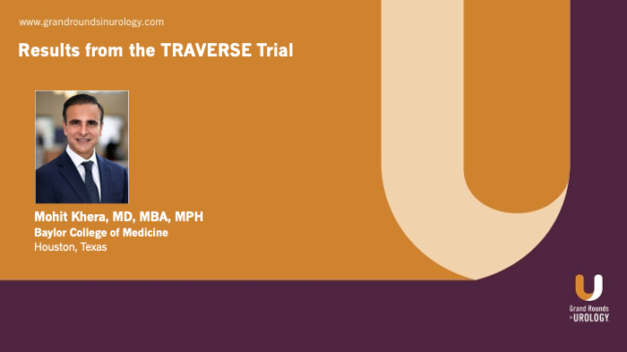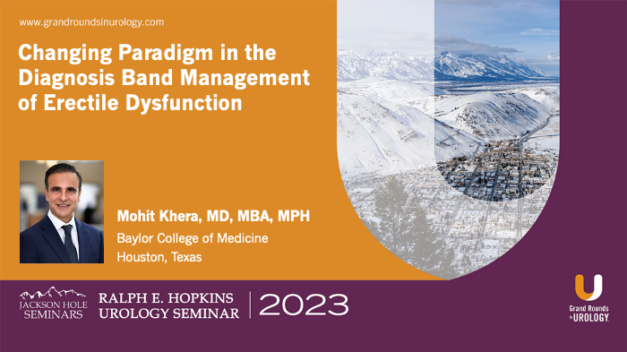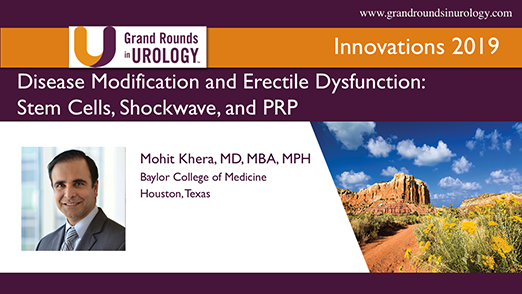Results from the TRAVERSE Trial
Mohit Khera, MD, MBA, MPH, provides an update on the results of the landmark TRAVERSE Trial, which examined the potential cardiovascular effects of testosterone therapy in men. After reviewing the complex recent history and controversies surrounding testosterone therapy, Dr. Khera walks through the TRAVERSE Trial, a randomized, double-blind, placebo-controlled study of over 5,000 hypogonadal men who either had cardiovascular disease (CVD), or were at increased risk for CVD over 5 years.
Dr. Khera highlights the thoroughness of the trial’s design, giving special focus to the primary, secondary, and tertiary endpoints relating to any MACE events for the trial participants. He concludes by presenting the results of the trial; testosterone therapy, for a mean duration of 22 months, did not increase the risk of major cardiovascular events in hypogonadal men over 40 years old with previous CVD or elevated risk for CVD.
Read More


